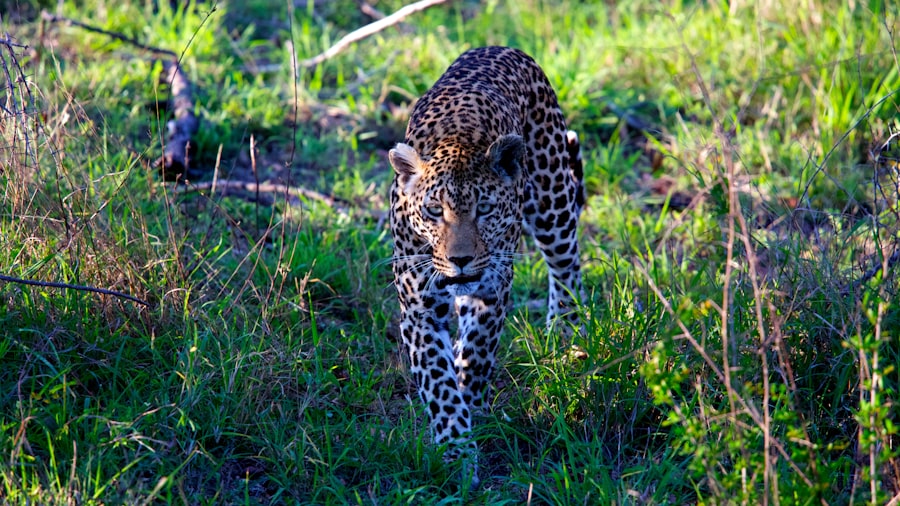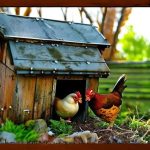Protecting your chickens from bird of prey attacks is crucial for their safety and well-being. As a chicken owner, it is your responsibility to ensure that your flock is protected from potential predators. Bird of prey attacks can be devastating, resulting in injury or even death for your chickens. By taking the necessary precautions and implementing effective strategies, you can minimize the risk of bird of prey attacks and provide a safe environment for your chickens to thrive.
Key Takeaways
- Bird of prey behavior can pose a threat to your chicken coop.
- Assessing your chicken coop and choosing the right location is crucial in protecting your chickens.
- Proper fencing and deterrents can help keep predators away.
- Providing adequate shelter and regularly checking your coop and surrounding area is important.
- Implementing a predator management plan can help ensure the safety of your chickens.
Understanding Bird of Prey Behavior
Birds of prey, also known as raptors, are carnivorous birds that hunt and feed on other animals. They have keen eyesight, powerful talons, and sharp beaks, which make them highly efficient hunters. Raptors typically hunt by soaring high in the sky, scanning the ground for potential prey. Once they spot a target, they swoop down with incredible speed and precision to capture their prey.
The types of birds of prey that are common in your area may vary depending on your geographical location. Some common examples include hawks, falcons, eagles, and owls. It is important to familiarize yourself with the behavior and characteristics of these birds in order to effectively protect your chickens.
Assessing Your Chicken Coop
Assessing your chicken coop for potential weaknesses is an essential step in protecting your flock from bird of prey attacks. Predators can exploit any vulnerabilities in your coop to gain access to your chickens. It is important to thoroughly inspect your coop and identify any areas that may need reinforcement.
Common areas that predators can enter include gaps or holes in the fencing, loose or weak doors, and poorly secured windows or vents. It is important to address these issues promptly to prevent predators from gaining entry into your coop.
Choosing the Right Location for Your Coop
Choosing the right location for your chicken coop is crucial for protecting your flock from bird of prey attacks. The location should be well thought out and strategically chosen to minimize the risk of predator encounters.
When selecting a location for your coop, consider factors such as proximity to trees or tall structures where birds of prey may perch, visibility from neighboring properties, and access to natural cover or hiding spots for your chickens. By carefully considering these factors, you can create a safer environment for your flock.
Installing Proper Fencing
Installing proper fencing around your chicken coop is one of the most effective ways to protect your chickens from bird of prey attacks. The fencing should be sturdy, secure, and tall enough to prevent predators from gaining access to your flock.
There are several types of fencing that are effective in deterring predators. Welded wire mesh or hardware cloth with small openings can prevent birds of prey from reaching through and grabbing your chickens. Electric fencing can also be an effective deterrent, as it delivers a mild shock to predators that come into contact with it.
Using Deterrents to Keep Predators Away

In addition to proper fencing, using deterrents can help keep predators away from your chicken coop. There are various types of deterrents available, each with its own pros and cons.
Visual deterrents, such as scarecrows or reflective tape, can be effective in deterring birds of prey. These deterrents create movement or reflect light, which can startle or confuse predators. However, some birds may become accustomed to these visual deterrents over time.
Auditory deterrents, such as wind chimes or predator calls, can also be effective in keeping predators away. The sound of these deterrents can mimic the presence of a larger predator and discourage birds of prey from approaching. However, it is important to periodically change the sounds or patterns to prevent predators from becoming accustomed to them.
Providing Adequate Shelter for Your Chickens
Providing adequate shelter for your chickens is essential for their safety and well-being. A secure and well-built coop can protect your flock from bird of prey attacks, as well as other potential predators.
There are different types of shelters available, including traditional coops, mobile coops, and chicken tractors. Traditional coops are stationary structures that provide a permanent home for your chickens. Mobile coops and chicken tractors are portable and can be moved around your property, allowing your chickens to graze on fresh grass while still providing them with protection.
Regularly Checking Your Coop and Surrounding Area
Regularly checking your coop and surrounding area is crucial for identifying potential threats and addressing them promptly. By conducting regular inspections, you can ensure that your coop remains secure and that there are no signs of predator activity.
When checking your coop, look for signs such as feathers or droppings near the fencing or evidence of attempted entry. Inspect the fencing for any damage or weaknesses that may need to be repaired. Additionally, scan the surrounding area for any perching spots or potential hiding places for birds of prey.
Implementing a Predator Management Plan
Having a predator management plan in place is essential for effectively protecting your chickens from bird of prey attacks. This plan should outline the steps to take if a predator is spotted or if there is evidence of predator activity.
If a predator is spotted near your coop, it is important to act quickly to prevent an attack. Remove any attractants, such as food or water sources, that may be drawing predators to your property. Increase the visibility around your coop by trimming back any overgrown vegetation that may provide cover for predators.
Conclusion and Final Thoughts
Protecting your chickens from bird of prey attacks is crucial for their safety and well-being. By understanding bird of prey behavior, assessing your chicken coop, choosing the right location, installing proper fencing, using deterrents, providing adequate shelter, regularly checking your coop and surrounding area, and implementing a predator management plan, you can create a safe environment for your flock to thrive. Take action today to protect your chickens from bird of prey attacks and ensure their happiness and well-being.
If you’re looking for the best way to protect your chickens from bird of prey attacks, you might also be interested in learning about the importance of having a well-insulated chicken coop. A properly insulated coop not only helps to regulate temperature and humidity levels for your chickens’ comfort, but it can also serve as an effective deterrent against predators. Poultry Wizard offers a helpful article on how to choose the right heater for your chicken coop, which can be found here. By implementing proper insulation and heating methods, you can create a safer environment for your chickens and reduce the risk of bird of prey attacks.
FAQs
What is a bird of prey?
A bird of prey is a carnivorous bird that hunts and feeds on other animals, including small mammals, reptiles, and other birds.
Why do birds of prey attack chickens?
Birds of prey may attack chickens because they see them as a potential food source. Chickens are small and relatively easy prey for many species of birds of prey.
What are some common types of birds of prey that attack chickens?
Common types of birds of prey that attack chickens include hawks, eagles, and owls.
What are some ways to keep birds of prey from attacking chickens?
Some ways to keep birds of prey from attacking chickens include using netting or wire mesh to cover the chicken coop or run, keeping chickens in a covered area, and using scare tactics such as decoys or noise makers.
Are there any natural predators of birds of prey?
While birds of prey are at the top of the food chain and have few natural predators, some larger mammals such as bears and coyotes may occasionally prey on them.
Meet Walter, the feathered-friend fanatic of Florida! Nestled in the sunshine state, Walter struts through life with his feathered companions, clucking his way to happiness. With a coop that’s fancier than a five-star hotel, he’s the Don Juan of the chicken world. When he’s not teaching his hens to do the cha-cha, you’ll find him in a heated debate with his prized rooster, Sir Clucks-a-Lot. Walter’s poultry passion is no yolk; he’s the sunny-side-up guy you never knew you needed in your flock of friends!







